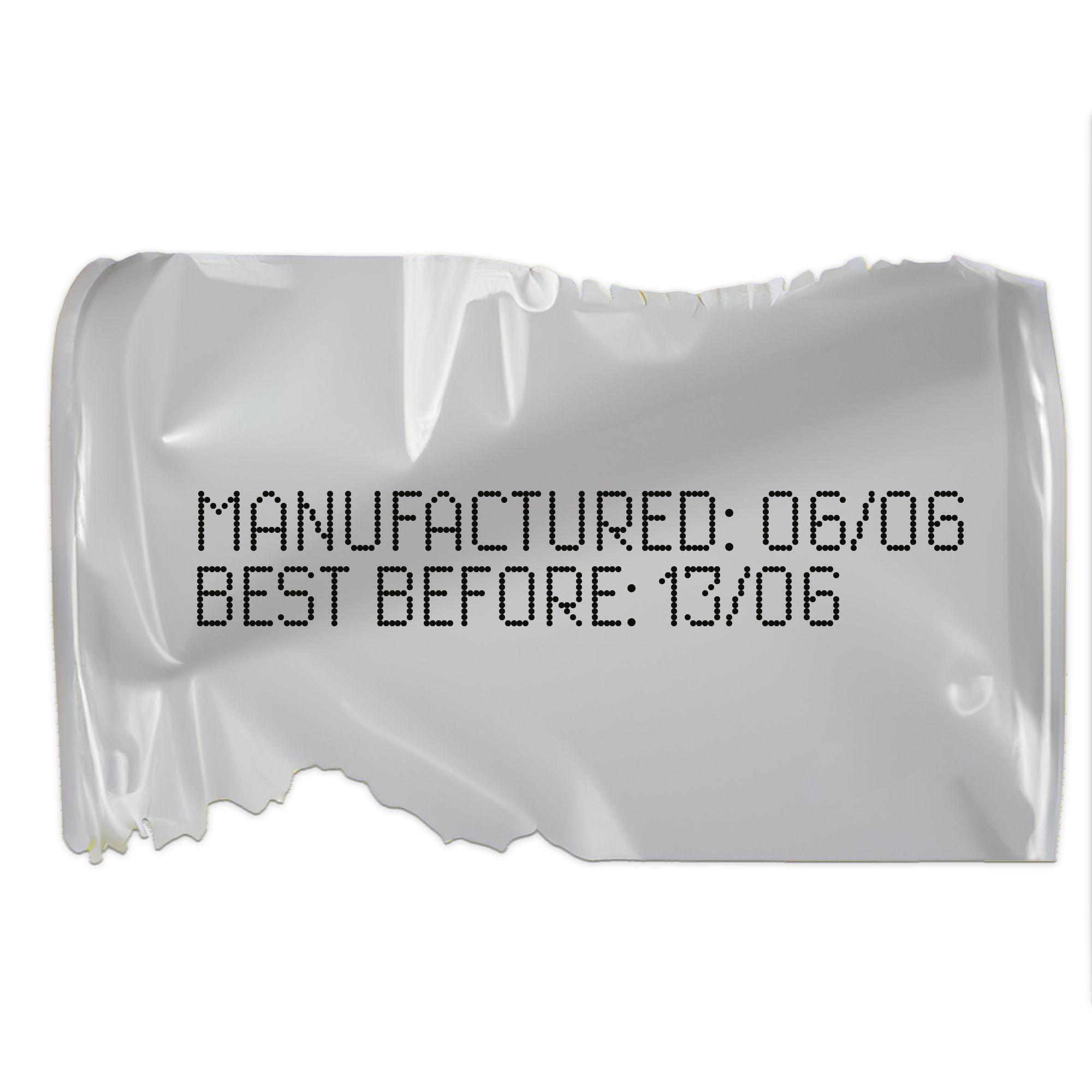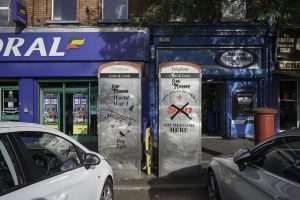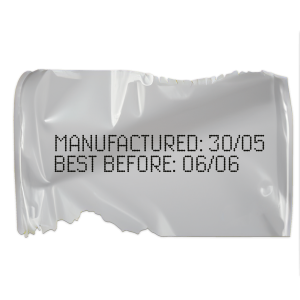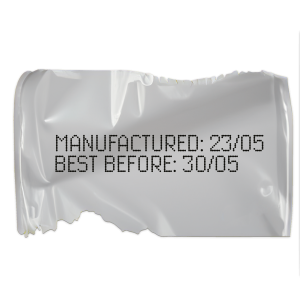BEST BEFORE: O Clacton! My Clacton!
by Joseph Rodgers | June 6, 2024

If the Tories lived roughly nine lives while they were in power, it makes sense that this election they’ll die about nine deaths. It should have been over after Vote Leave, after Strong and Stable, after Partygate, after the Lettuce. But, like a supervillain kept alive solely for the money-spinning sequel, the Tories held on to fight another day. Maybe they got a new face, some new plans, but really they were just the same old Tories, up to the same old tricks.
Now the show is finally over, and there needs to be a way of tying each tortured story line together. It has to seem like thing were always destined to end this way, that this had long been the plan. All the Tories’ ghosts must come back to haunt them, so that each can each say it was them wot won it: the scandals finally took their toll, Labour woke up and got boring again, and now, in a turn of events about as surprising as Bond besting Blofeld, Nigel Farage is back. We’ve heard everything he’s going to say before, and now even the responses are repetitive. He knows that all publicity is good publicity for him, so I’m sure he’s glad about the milkshake he had thrown at him, just as I’m sure he was glad about the one thrown at him in 2019.
He probably thinks he can win a seat this time. Perhaps he got jealous of George Galloway and bored of Richard Tice. Or, with Matt Hancock standing down as an MP, maybe Farage just wants to keep up the presence of former I’m A Celebrity contestants in Parliament: they’ve experienced genuine trials and tribulations that most molly-coddled career politicians lack. Whatever the reason for running, if Farage thinks his candidacy will do anything except boost his own ego, he’s mistaken.
When Michael Gove announced he would not contest this election, many claimed he was the most influential recent figure not to have been Prime Minister. I would argue that Farage, who, despite this being his eighth attempt, has never even been elected an MP, has a better claim to this title. The reason that David Cameron promised in his 2015 manifesto to hold a referendum on Europe was so that he could sway could-be UKIP voters. For more than a decade Farage has pulled the Tories further and further in the direction of xenophobic populism, always threatening to split the right-wing vote, but also never saying never to the possibility of joining them and, presumably, taking them over. Perhaps the best evidence of Farage’s gravity is in Labour’s current strategy. Probably smartly, Starmer has calculated that the Tories are so disliked that he just needs to be as uncontroversial as possible, and he will ease into Number 10. But what does this default politics look like? Part of it is promising to stop the boats, criticising the Rwanda policy not for its aims, but rather for its execution.
So the sad truth is that Farage’s politics have already won. He doesn’t even need to go into Parliament to make the change he’s long called for. In the speech announcing his candidacy, he lamented that this was “the dullest, most boring election campaign” because Starmer and Sunak “sound the same.” I can see why Farage might find it particularly boring. If he feels like he’s heard it all before, then he’s heard a lot of it coming from his own lips. Both parties promise they’ll be tough on immigration. Neither have any plan to change our relationship with the EU. There was a time when Farage could differentiate himself with flags and anthems, but even Labour have succumbed to that now.
This explains why it’s so hard to decipher what Farage is really fighting for. His Party is called “Reform”, and yet he promises “a revolt”. You don’t need to be Rosa Luxemburg to work out that this advertising is a little confused. During his announcement, Farage claimed that “nothing in this country works anymore”. If you read Reform UK’s policy document, though, it hardly suggests a party focused on solutions. Their headline plans for education are banning “transgender ideology” and “critical race theory”. Similarly, they advertise three transport policies they would pursue in their first hundred days in office. They would “scrap HS2” and “Stop the War on Motorists”. They do, however, offer one plan for a proactive change: “Accelerate Already Announced Transport Infrastructure.” Too vague? They give us a single sentence to flesh out their plan: “Focus on the North.” I suppose they were going for pithy.
The Clacton constituency was first made famous when its MP, Douglas Carswell, defected from the Conservatives to UKIP in 2014, becoming the Party’s first MP. If Farage really was an alternative to the status-quo, then Reform would have run a candidate in the seat in 2019. But they didn’t because Farage wanted Johnson to win, and knew that Reform candidates splitting Tory votes might stop that from happening. Only now that the Tories are certain to lose regardless, and now that the Labour alternative is not particularly alternative anyway, will Reform go for places like Clacton. Farage can have another go at Parliament, safe in the knowledge that whoever wins will have been moulded in his image anyway. Farage says he decided to run because people he talked to on the campaign trail convinced him too, but, as with 2014, one suspects less a genuine change of heart and more a self-centred calculation about remaining in the spotlight.
Another thing about Farage is that, for all his pretences to be a man of the people, he doesn’t trust “the people” much at all. Reform is an entirely top-down operation: members have no say over policy, there are no local party branches, and 80% of its funding comes from Richard Tice. There seems to have been no formal process for Farage to take the leadership off of Tice, and no sense that there should have been. Speaking about a party policy he wants to change, Farage said “I took over yesterday, give me more than 12 hours and I’ll sort a few things out.” His big Westminster successes are like this, too. I’ve mentioned Carswell, but Lee Anderson, Reform’s only MP, is another renegade originally elected as a Tory. As much as he draws the crowds, a major part of Farage’s success has taken place behind closed doors. Sunak came into power without a vote from Conservate Party members (let alone the country), and Starmer has recently faced criticism for blocking Labour candidates who have the support of their local members. Here too, then, the main parties’ candidates are fumbling their way through a playbook that Farage has long mastered.
So here we are. The son of a stockbroker is playing the outsider against the husband of a billionaire and a knight of the realm. Farage told the people of Clacton that he’d “stand up and fight” for them. I’m sure Penny Mordaunt will be proud. When Rishi Sunak debuted his shiny new Adidas Sambas, Farage mockingly claimed he preferred Adidas Gazelles. That is about as much difference as we can expect.∎

Words by Joseph Rodgers. Graphic by Alice Robey-Cave.




